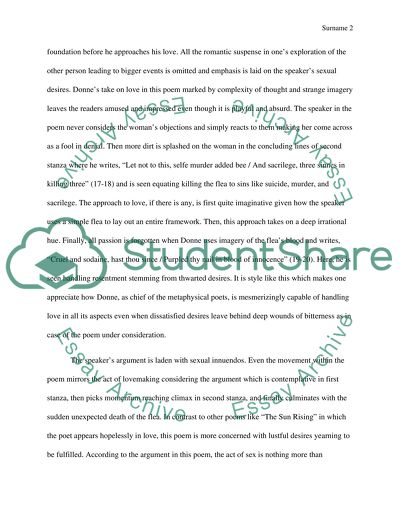Cite this document
(“A literary analysis of two poems by Donne namely The Flea and The Sun Essay”, n.d.)
Retrieved from https://studentshare.org/english/1491438-a-literary-analysis-of-two-poems-by-donne-namely-the-flea-and-the-sun-rising
Retrieved from https://studentshare.org/english/1491438-a-literary-analysis-of-two-poems-by-donne-namely-the-flea-and-the-sun-rising
(A Literary Analysis of Two Poems by Donne Namely The Flea and The Sun Essay)
https://studentshare.org/english/1491438-a-literary-analysis-of-two-poems-by-donne-namely-the-flea-and-the-sun-rising.
https://studentshare.org/english/1491438-a-literary-analysis-of-two-poems-by-donne-namely-the-flea-and-the-sun-rising.
“A Literary Analysis of Two Poems by Donne Namely The Flea and The Sun Essay”, n.d. https://studentshare.org/english/1491438-a-literary-analysis-of-two-poems-by-donne-namely-the-flea-and-the-sun-rising.


